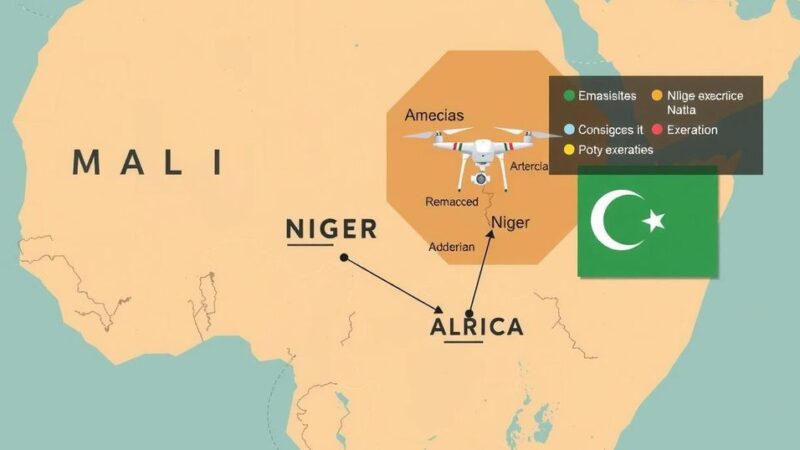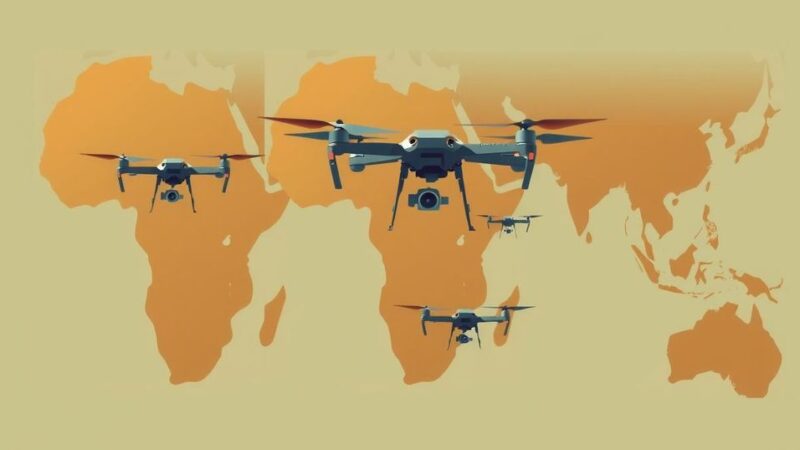International lawyers for the Democratic Republic of Congo praise Apple’s decision to halt sourcing conflict minerals due to escalating violence, yet continue legal actions in Europe. Complaints were filed against Apple subsidiaries in France and Belgium. Despite Apple’s denial of wrongdoing and claims of increased scrutiny within their supply chain, the legal representatives underscore the need for verified accountability regarding past allegations linked to human rights abuses in the region.
International attorneys representing the Democratic Republic of Congo have expressed their support for Apple Inc.’s recent decision to halt sourcing minerals from the nation, a move prompted by escalating conflict within the region. However, they have indicated that their legal actions against the technology giant will continue in European courts. This week, criminal complaints were lodged against Apple’s subsidiaries in France and Belgium, alleging that the company utilized conflict minerals from Congo within its supply chain.
Congo is recognized as a significant source of tin, tantalum, and tungsten—known as 3T minerals—that are integral to the production of computers and mobile devices. Nevertheless, some artisanal mines in the area are reportedly controlled by armed groups implicated in serious human rights violations, as noted by United Nations experts and various advocacy groups. In response to the allegations, Apple firmly denies any wrongdoing and has mandated that its suppliers refrain from using minerals sourced from both Congo and Rwanda.
The Congolese lawyers stated that they welcomed Apple’s recent commitments with “satisfaction and caution.” They emphasized the necessity for verification of Apple’s claims, insisting that the assertions regarding changes in the supply chain must be substantiated with tangible evidence. They remarked, “Apple’s statements about changes to its supply chain will have to be verified on the ground, with facts and figures to support them.”
Despite Apple’s assertions that they conduct audits of their supply chains and actively promote mineral traceability, the legal representatives of Congo maintain that the company has been complicit in crimes connected to the illicit extraction of minerals. They argue that Apple’s actions have indirectly contributed to the ongoing conflict in the region, which has ravaged the eastern mining areas since the 1990s.
Armed conflicts, largely funded by the exploitation of mineral resources and often supported by foreign actors, have led to a devastating humanitarian crisis, resulting in millions of casualties and the displacement of numerous civilians. The ongoing battle for mineral rights remains a significant catalyst for violence, with evidence pointing towards smuggling routes stretching through Rwanda. Yet, Rwanda has denied its involvement in the illegal mineral trade.
The complex situation surrounding mineral extraction in the Democratic Republic of Congo (DRC) is deeply intertwined with ongoing armed conflict and severe human rights abuses. Declared a critical supplier of 3T minerals essential for technology, the Congo has struggled against the influence of armed groups that exploit mineral wealth for funding. International scrutiny has increased, prompting global corporations like Apple to reassess their sourcing practices in an effort to avoid complicity in human rights violations. Apple’s recent decision to suspend sourcing from the DRC signals an awareness of these issues, although concerns persist regarding their actual compliance and the historical impact of their supply chains.
In summary, while Apple’s decision to cease sourcing conflict minerals from the Democratic Republic of Congo represents a proactive step towards ethical sourcing, the legal ramifications of this stance remain significant. The ongoing lawsuits in France and Belgium underscore the complexity of the supply chain issues intertwined with international law and human rights considerations. The Congolese lawyers’ insistence on verification of Apple’s claims highlights the necessity for transparency and accountability in corporate practices, aiming to address the historical injustices that have long plagued the region.
Original Source: www.investing.com






